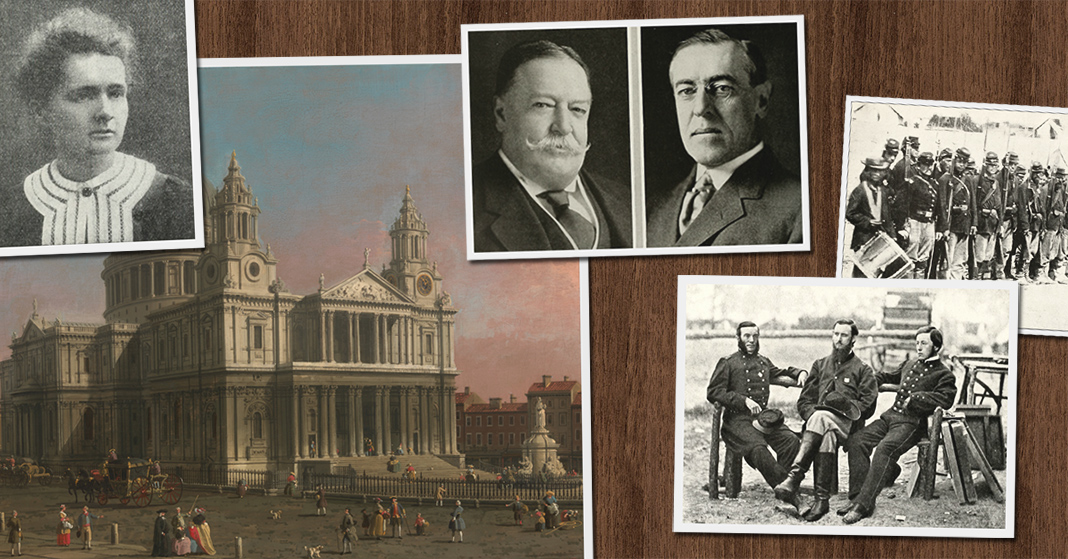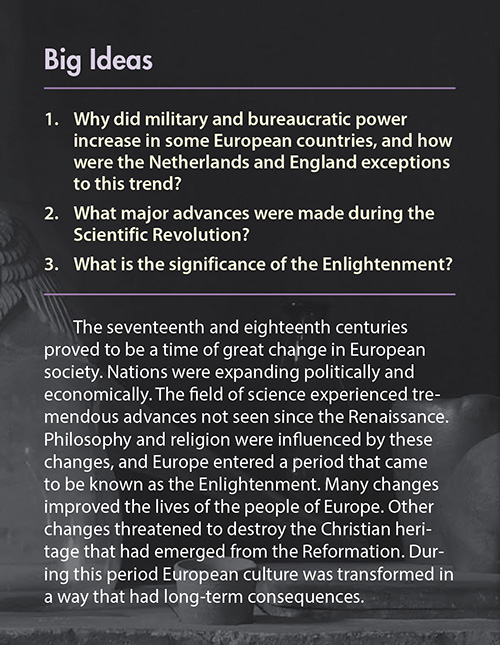
It’s not unusual for children to find history boring. But that wasn’t the case with me. I’ve been a history nerd ever since my dad took me on a homeschool field trip to a World War II aircraft carrier. But I understand that not everyone shares my enthusiasm for studying the past. Does your child get bored with history?
There are plenty of reasons some children (and adults!) think history is uninteresting. Here are just two of them—and my suggestion for how to fix the problem.
• Just the (Boring) Facts
Sometimes studying history feels like the mindless memorization of unrelated dates and names. As they read historical narratives, kids may get the sense that dates pop up without warning, sometimes causing them to wonder why particular events have dates associated with them and others don’t.
And then there are the names. Certain people have some action or achievement associated with their names that we exhort our children to remember. Take the Age of Enlightenment as an example. There are so many philosophers and so many scientists—each with a discovery or book title attached to his name. Trying to keep track of it all can feel overwhelming.
• Not Relevant (to Me)
Not only do the dates and names feel overwhelming, focusing on facts makes it difficult for your child to see what all this has to do with him personally. He’s hearing about a bunch of dead people who haven’t done a thing for centuries. And when is anybody ever going to use the fact that 1,285 years ago this month Charles Martel defeated the Moors in the Battle of Tours? It just doesn’t seem to make any difference in our day-to-day lives.
Big-Picture Approach
Those are two common complaints, but what can we do to help our children see the significance and relevance of people and events from the past? We can turn “boring” history into a fascinating study by using questions to focus our children’s attention on the big picture. An important aspect of this is teaching history as a narrative in chronological order.
And here are a couple of effective questioning strategies you can use to help your children see the big picture of the historical narrative they’re reading. This involves going beyond the regular surface-level questions like “When did . . . ?” and “Who wrote . . .?” Big-picture questions enable students to synthesize historical data into an overarching view of the past.
• Before-and-After Reading Questions
These questions are most effective when given to children as preparation before they read something and as follow-up afterwards. Before children wade into material chronicling a series of bureaucratic changes, scientific advancements, or philosophic treatises, they need to know what they’re looking for. Guiding questions like the ones below from World Studies (page 152) can help. Having a purpose in their reading will lead children to see the bigger picture.

• Critical Thinking Questions
A second type of big-picture question can also help your children refocus on the important ideas after reading through the details, like this one from Heritage Studies 4 (page 171).

Such questions generalize history, making it more relevant. They help your children move from superficially recalling details to thinking critically because they have to synthesize the details in order to create a generalization. All those pesky details are important, but if children don’t develop critical thinking skills, they won’t see the significance.
By understanding chronological order and generalizations of historical events, students can make appropriate analogies to things that are happening today. While no past event is a perfect match for a current event, there’s often significant overlap. The differences mean we cannot use the past to predict the future, but we can use the past to give us moral clarity about the present. A student with a biblical worldview and an understanding of historical context will be better able to navigate the complexities of current events. Ultimately, those connections to worldview and the present will make history interesting to your child.
Use effective questions in history so your children will learn to value history as they see its connection to the present.
